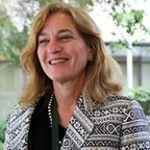
Professional Development
ITHS offers a variety of seminars and workshops which cover multiple topics and are intended to reach different members of the research team.
Professional Development for Research Coordinators
ITHS hosts learning opportunities throughout the year, encouraging research professionals of all levels of experience to network and engage with peers, exchange ideas, and hone professional skills.
Faculty Career Development Series
The ITHS Career Development Series consists of lectures and workshops designed to provide junior faculty and investigators with tools, a forum for discussion, and learning opportunities to help advance their careers.
Team Science
ITHS Team Science education and training is offered to support the development, performance, and recognition of high functioning interdisciplinary research teams.
Clinical Research Boot Camp
Our Clinical Research Boot Camp is an annual workshop designed as an introduction for faculty, staff, and post-doctoral fellows to learn all that is involved in designing and managing a clinical trial.
CRISP: Clinical Research Intensive Summer Program
CRISP is a 3-week long program that will provide physician clinical investigators with hands-on experience and key clinical research skills to accelerate their career development.
Pre-Screening 101 Training
This training module is designed to explore a research recruitment tool by using REDCap to build a pre-screening survey or registry.
Description
Right now, and over the course of your career, there are and will be many leadership roles and opportunities. There are a growing number of resources to support leadership development and training, but many scientists have not had training in leadership (e.g. in team, clinical, or academic leadership).
This year’s ITHS Team Science Seminar Series has focused on providing resources to help translational researchers develop their collaborative leadership potential. In our final session of the 2024-2025 series, we will focus on an important aspect of leadership—figuring out when and how to say “yes” vs. “no” when new opportunities arise.
Scroll down to register now!
Learning Objectives
- Compare & contrast 3 approaches to help guide decisions about saying “yes” vs. “no” to a new leadership opportunity.
- Evaluate alignment between goals & opportunities in real-world scenarios.
- Practice strategies for saying “no” to opportunities that are not a good fit with your goals.
- Formulate plans to be ready for anticipated & unanticipated growth & change.
[box class="speaker"]
About the Speakers
Erin Abu-Rish Blakeney, PhD, RN, is co-lead of the UW ITHS Team Science Core and a Research Associate Professor in the Department of Biobehavioral Nursing and Health Informatics at the UW School of Nursing. Dr. Blakeney’s program of research focuses on how teams work together and how their teamwork influences the production of new knowledge and translation of research into practice along the entire classroom to bench to bedside spectrum. She has nearly 15 years of experience developing, implementing, and evaluating team approaches to interdisciplinary education, healthcare, and research.
 Jennifer Sprecher, BSIE, MS Management Science, is Director of Strategy Development and Deployment with the School of Nursing. Ms. Sprecher works with organizations to achieve excellence through Strategy development, Lean Project Management, balanced scorecards, change management, benchmarking, team problem solving, team and leadership coaching. Ms. Sprecher is a strong team facilitator, called upon to facilitate high-level teams where interaction and reaching objectives are critical.
Jennifer Sprecher, BSIE, MS Management Science, is Director of Strategy Development and Deployment with the School of Nursing. Ms. Sprecher works with organizations to achieve excellence through Strategy development, Lean Project Management, balanced scorecards, change management, benchmarking, team problem solving, team and leadership coaching. Ms. Sprecher is a strong team facilitator, called upon to facilitate high-level teams where interaction and reaching objectives are critical.
[/box]
[vc_separator type="normal"][gravityform id="854" title="true" description="true" ajax="false"]









